Ukraine fighting: West warns Russia of sanctions
- Published
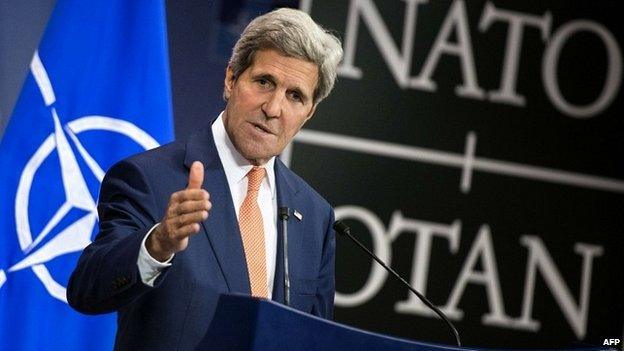
John Kerry called on Russia to do more to stop the flow of arms and fighters into eastern Ukraine
US Secretary of State John Kerry has urged Russian President Vladimir Putin to publicly call on separatists in Ukraine to lay down their arms.
He said Russia would face "greater costs" unless it took action to show that it supported peace in Ukraine.
Earlier, German Chancellor Angela Merkel warned Russia of new sanctions after fresh clashes in eastern Ukraine.
Ukraine's president has said continued violations might end a truce between the government and pro-Russian rebels.
Chancellor Merkel and French President Francois Hollande spoke to Mr Putin and Ukrainian President Petro Poroshenko for an hour on Wednesday, officials said.
They used the telephone conversation to "encourage" both to "work together, especially in order to put in place a mechanism to oversee the truce", a statement from Mr Hollande's office said.
Nato Secretary-General Anders Fogh Rasmussen: ''We see no signs that Russia is respecting its international commitments''
Ukraine's government said the call ended with an agreement to let OSCE observers monitor the country's border with Russia and for both sides to "exchange hostage lists".
On Tuesday, a Ukrainian military helicopter was shot down near Sloviansk with the loss of nine lives, and there were reports of fighting overnight near the Russian border in Luhansk region.
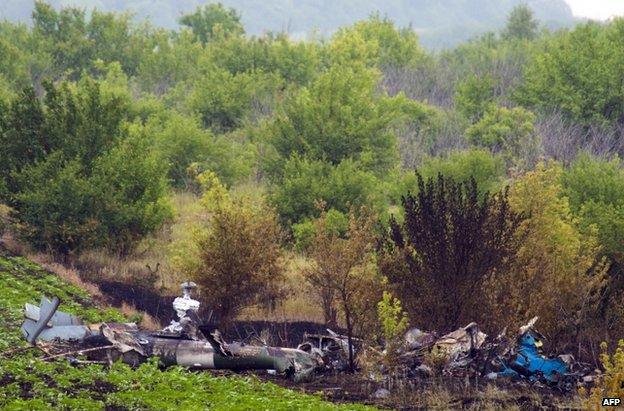
The wreckage of a Ukrainian helicopter downed near Sloviansk on Tuesday
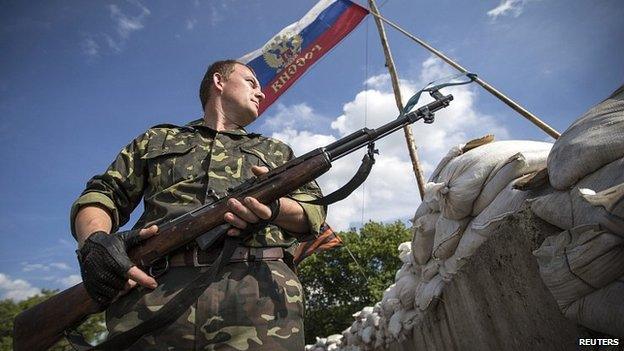
Pro-Russian fighters continue to occupy key buildings in cities across eastern Ukraine
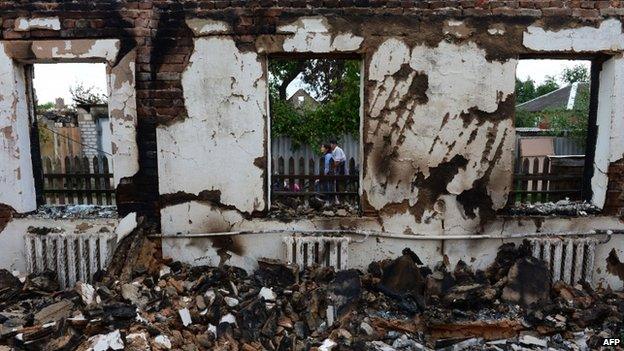
Some buildings in the besieged rebel stronghold of Sloviansk have been damaged by shelling
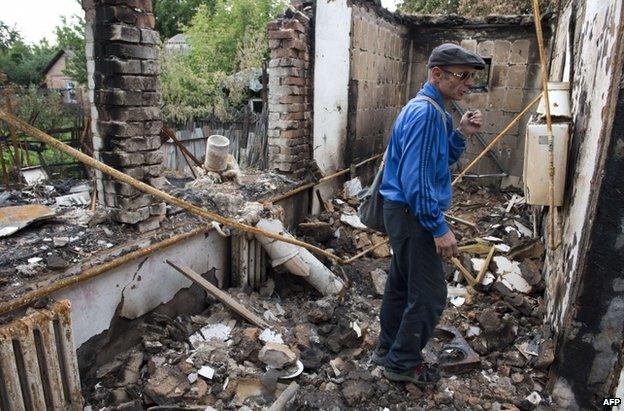
Some of Sloviansk's population has fled the fighting
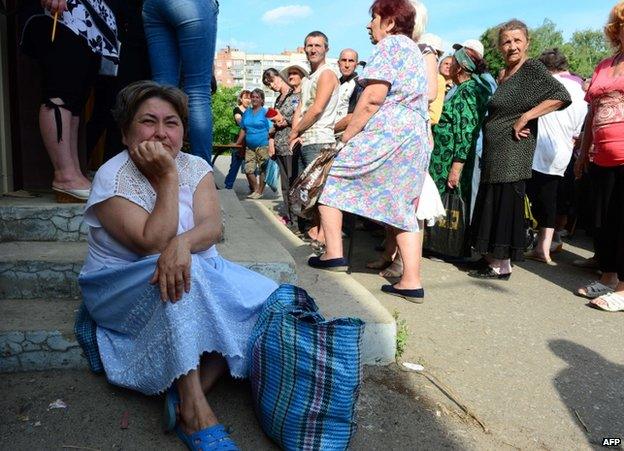
Residents of Sloviansk have been queuing for rations
On Wednesday the Ukrainian military accused the rebels of breaking the ceasefire 44 times since it began.
But Alexander Borodai, prime minister of the self-styled Donetsk People's Republic, has said there is effectively no ceasefire because of government attacks.
The truce is part of Ukraine's plan to end two months of conflict with pro-Russian insurgents who control key buildings in towns and cities across the east.
More than 420 people have been killed in the region since mid-April, the UN estimates.

Analysis: David Stern, BBC News, Kiev
One would suspect that the Ukrainian government's truce in the east is now a dead letter. Public outrage alone would seem to demand some sort of military retaliation.
And if the Ukrainian government uses force, then very likely the Ukrainian insurgents and their Russian comrades-in-arms will answer in kind. An escalation seems inevitable.
At this point, it is close to impossible to determine why the militants decided to carry out such a provocative act, just one day after they declared a ceasefire. Maybe this was some rogue element. Maybe the insurgents were never serious. Maybe Moscow told them to do it.
Whatever the reason, the hopes of just 24 hours ago, that Ukraine's east could finally see peace, if only temporarily, ring especially hollow.

President Poroshenko is expected to unveil proposals for constitutional reform to give regions greater self-government when he attends parliament on Thursday.
On Friday, he is due to sign the long-delayed association agreement with the European Union - a pact rejected in January by then President Viktor Yanukovych under pressure from Russia.
'Sanctions can return'
Mr Kerry welcomed the surprise decision by President Putin to cancel a parliamentary resolution giving him the right to use Russian forces in Ukraine.
On Wednesday, the upper house of Russia's parliament voted 153-1 in favour of revoking President Putin's authorisation for military intervention in Ukraine at his request.
Mr Kerry said it was "an important step" but said it could be "reversed in 10 minutes".
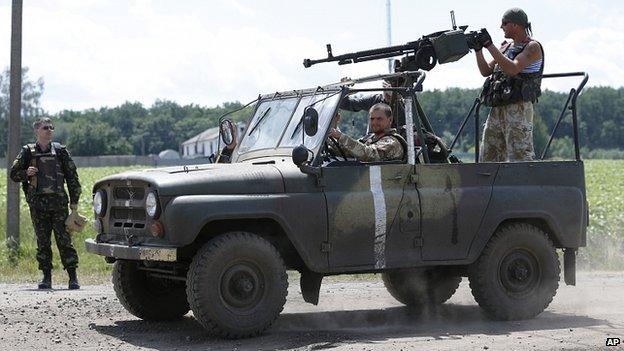
Ukrainian government troops are controlling roadblocks in some parts of the east
He repeated his call for Russia to do more to stop the flow of arms and fighters into eastern Ukraine, saying the Ukrainian helicopter had been shot down by a Russian weapon.
Nato chief Anders Fogh Rasmussen said Moscow was "using a new different type of warfare against Ukraine" and he promised a "package of long-term support measures for Ukraine".
Russia denies claims that it is encouraging and arming the separatists.
New fighting
The separatist commander in the rebel stronghold of Sloviansk, Donetsk region, announced on Wednesday that his forces had shot down the helicopter.
In a statement, Igor Strelkov accused government forces of bombarding local villages with artillery and mortars.
There were also fresh clashes in Luhansk region on Wednesday, with Ukrainian MP Oleh Lyashko saying that Ukrainian security forces had come under attack 2km (1.2 miles) from the Russian border.
Insurgents had agreed on Monday to observe a ceasefire, proposed by the Ukrainian government, until Friday.
